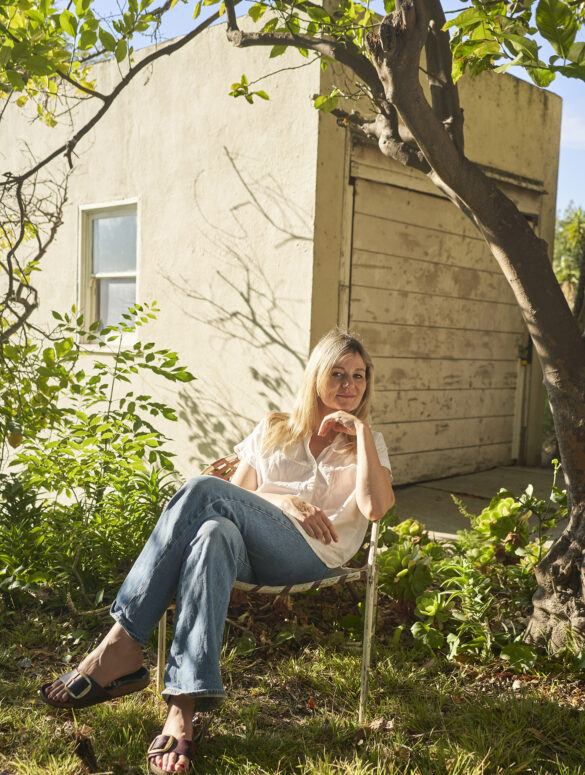Text by Martha Cheng
Images by Tori Dickson and courtesy of Amass
When Morgan McLachlan moved to Los Angeles in 2007, she discovered its fragrance. Not of an anonymous metropolis, but of the jasmine that permeates the city in the springtime, elderflowers blossoming in Elysian Park, and the wild sages and oaks in the hills. She acquainted herself with the plants of her new home, from the citrus of the region to the California bay tree in her backyard. With the former, she distilled the first vodka made from clementine, and the latter she featured in the dry gin of her company, Amass.
“I definitely didn’t wake up one morning when I was a little girl and decide to become a distiller,” says McLachlan. But growing up in the Pacific Northwest, she developed a love for the plants around her. She spent summers on Vancouver Island with her grandparents, where “you’ll find coniferous trees in the temperate rainforest, from cedars to spruces to Douglas firs,” she says. “And then, because of the island’s mild climate, you’ll also find botanicals more often associated with a Mediterranean climate–lemons, sumac, sorrel, just to name a few.”

I definitely didn’t wake up one morning when I was a little girl and decide to become a distiller.
Morgan McLachlan
That love for plants led her to found Amass in 2018, producing spirits and then personal care products intended to celebrate botanicals and infuse them into our daily lives. The company even employs an ethnobotanist whose expertise is plants used for medicinal purposes. According to McLachlan, Amass is a botanical company, with botanicals being the through-line that connects the spirits and personal care products. “It’s really about celebrating and working with the power of plants for everyday things that we consume and use,” she says.
Amass’ first spirit was the aforementioned gin with 29 botanicals to capture the spirit of L.A. (It is even distilled downtown.) “I really am inspired by Los Angeles because there are incredible indigenous plants that grow here and then also all these non-indigenous ones that are important in history—like the valley [of Southern California] that was all citrus groves up until not too long ago,” she says. “It’s really a wild place.”
Her own backyard tree still supplies the bay leaves for the company’s dry gin, which doesn’t taste like the usual juniper-forward gins—it’s more complex, suffused with coriander and cardamom and fresh citrus alongside the juniper. “What’s the point in making a new gin if you’re using those 10 botanicals that everyone’s been using for 200 years?” McLachlan says. “Why not explore other botanicals and see what they can do?”


Part of what drives her exploration is to break out of tradition and approach spirits and fragrances in fresh ways, and another part is the pursuit of biodiversity. The botanicals she uses aren’t limited to Southern Californian sources: She recently created a non-alcoholic spirit, Riverine, that is more of a tribute to the natural world of her childhood, evoking pine trees with juniper and brightened with sorrel and sumac. And in the personal-care realm, the Four Thieves fragrance, with botanicals including clove and rosemary, is loosely based on a formula that a band of thieves used to protect themselves against the bubonic plague in medieval Europe, which she first heard of when she was researching early modern European history in college.
The culture around botanicals fascinates McLachlan as much as their functionality. While working as a research assistant in the Czech Republic for an academic writing a book about the cultural memory of the country, she started noticing very regional spirits. In the Czech Republic it might be schnapps, in Mexico mezcal, in Scotland scotch. “I became interested in the history of alcohol in relation to humanity—how we’ve co-evolved with celebrational beverages that are mood-altering and the cultural practices around making and consuming alcohol.”
Amass’ products provide ways to mark our days with botanicals. “We think of our drinks as being conduits for social rituals and our personal-care items as conduits for more personal rituals,” she says. “We think of ritual as being something that we all need, but in the modern, secular society, we don’t really have the language for.” Amass hopes to be part of new language, one that draws on the traditions carried in the plants and scents of the natural world.


